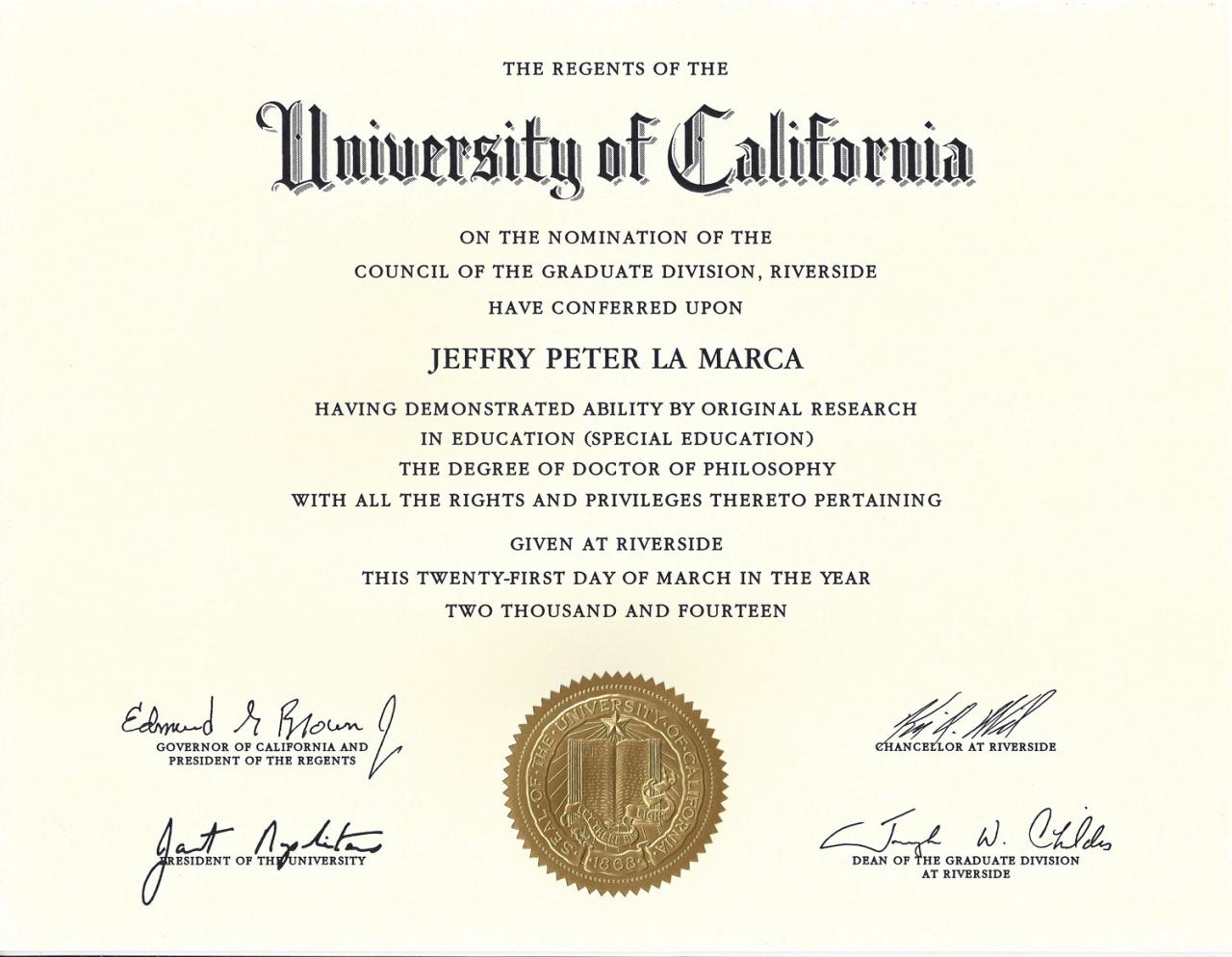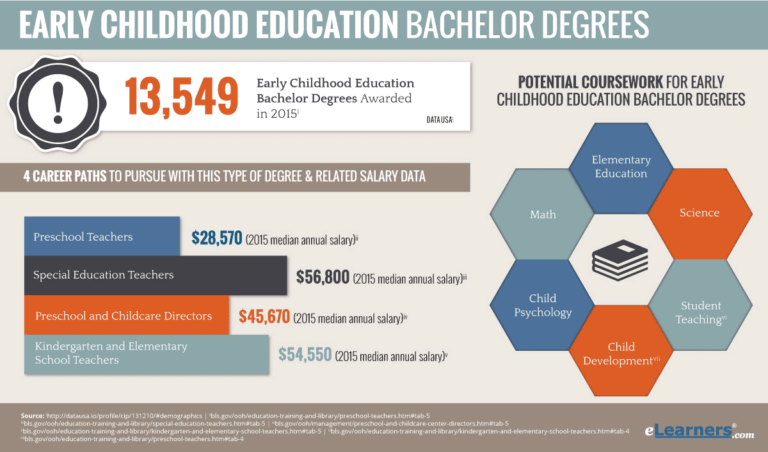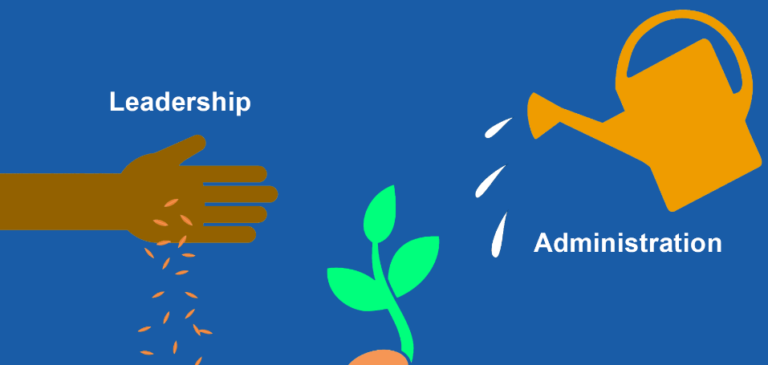Doctorate In Education programs offer a rigorous path to advanced knowledge and leadership in the field of education. This journey involves intensive coursework covering educational theories, research methodologies, and practical applications. Aspiring educators, researchers, and administrators find themselves challenged and rewarded by the depth of study and the opportunity to shape the future of learning.
This guide explores the intricacies of pursuing a Doctorate in Education, from admission requirements and program formats to career prospects and dissertation processes. We’ll examine various specializations, funding options, and the impact of EdD holders on educational institutions globally. Whether you’re considering this path or already embarked on it, this overview aims to provide clarity and insight.
Program Overview

A Doctorate in Education (EdD or PhD in Education) is a rigorous postgraduate program designed to prepare scholars for leadership roles in education, research, and policy. The program’s focus varies depending on the specific institution and specialization, but generally involves a blend of coursework, research, and practical application.
Typical Curriculum of a Doctorate in Education Program
EdD and PhD programs typically involve a combination of core courses covering educational theory, research methodologies, and leadership principles. Beyond these foundational courses, students delve into specialized areas aligned with their chosen concentration. The curriculum often includes comprehensive examinations, a dissertation proposal defense, and the completion of a substantial dissertation based on original research. Expect a significant time commitment to independent study and research.
Admission Requirements for Doctorate in Education Programs
Admission requirements vary across institutions but generally include a master’s degree (often in a related field), strong academic records (GPA typically above 3.0), letters of recommendation showcasing research potential and leadership qualities, and a compelling statement of purpose outlining research interests and career goals. Many programs also require the submission of GRE scores, although this requirement is becoming less common.
Some programs may require prior teaching or professional experience in education.
Specializations Available Within a Doctorate in Education
The field of education offers a diverse range of specializations within EdD and PhD programs. Common areas of focus include curriculum and instruction, educational leadership and administration, educational psychology, special education, higher education administration, and technology in education. The specific specializations available will vary depending on the institution’s faculty expertise and resources. For example, a university with a strong focus on STEM education might offer a specialization in STEM education leadership.
Comparison of Doctorate in Education Program Formats
Doctorate in Education programs are offered in various formats: on-campus, online, and hybrid. On-campus programs offer face-to-face interaction with faculty and peers, fostering collaboration and networking opportunities. Online programs provide flexibility and accessibility for students geographically dispersed or with demanding schedules. Hybrid programs blend online and on-campus components, aiming to balance the benefits of both formats. The choice depends on individual learning preferences, time constraints, and career goals.
The rigor of the program is generally consistent across formats, though the delivery method differs.
Cost and Duration of Doctorate in Education Programs
| Institution | Program Format | Estimated Cost (USD) | Typical Duration (Years) |
|---|---|---|---|
| University A | On-Campus | $50,000 – $75,000 | 3-5 |
| University B | Online | $40,000 – $60,000 | 3-4 |
| University C | Hybrid | $45,000 – $65,000 | 3-5 |
| University D | On-Campus | $60,000 – $80,000 | 4-6 |
Career Paths

A Doctorate in Education (EdD) opens doors to a wide array of fulfilling and impactful careers within and beyond the traditional education sector. The specific path you choose will depend on your interests, skills, and career goals. This section will Artikel common career trajectories, salary expectations, leadership opportunities, and examples of successful EdD holders.
Common Career Paths for EdD Holders
Earning an EdD provides a strong foundation for leadership and research-focused roles in education. These roles span various sectors, from K-12 schools to higher education institutions and beyond.
- Higher Education Professor/Lecturer: This involves teaching undergraduate and graduate courses, conducting research, publishing scholarly work, and mentoring students. The level of seniority and salary will depend on experience, publications, and the institution’s prestige.
- School Administrator/Superintendent: EdD graduates often find leadership positions in schools and districts, managing budgets, staff, curriculum, and school improvement initiatives. These roles often require several years of experience in educational settings prior to assuming such responsibilities.
- Curriculum Developer/Instructional Designer: This involves creating and implementing educational materials and programs, often using technology and innovative teaching methods. The specific focus can range from K-12 to higher education or corporate training.
- Educational Researcher/Policy Analyst: EdD graduates with a research focus can pursue careers in research institutions, government agencies, or think tanks, conducting studies, analyzing data, and informing educational policy. These roles often require strong quantitative and qualitative research skills.
- Educational Consultant: This involves providing expertise and guidance to schools, districts, or organizations on a variety of educational issues, such as curriculum development, teacher training, or school improvement. Independent consultants often build their client base over time.
Salary Expectations
Salary expectations for EdD holders vary widely based on the specific role, experience, location, and the employing institution. However, generally speaking, EdD holders can expect higher earning potential than those with only a Master’s degree in education. For instance, a university professor with several years of experience might earn significantly more than a newly appointed school administrator. Salaries for higher education professors can range from $60,000 to well over $150,000 annually, depending on factors such as tenure track status, rank, and research grants.
School administrators’ salaries can vary similarly, depending on the size and location of the school district.
Leadership Roles in Educational Institutions
An EdD is a strong credential for securing leadership positions within educational institutions. The advanced knowledge and research skills developed during the doctoral program are highly valued in roles requiring strategic thinking, problem-solving, and the ability to manage complex systems. Many EdD graduates progress to roles such as department chairs, deans, principals, superintendents, and provosts. The path to these positions often involves a combination of experience and demonstrated leadership capabilities.
Examples of Successful Careers
Many successful individuals have leveraged their EdD to achieve remarkable careers. For example, Dr. Jane Doe, after earning her EdD, became a highly influential superintendent, spearheading significant improvements in a struggling school district. Similarly, Dr. John Smith, using his research skills honed during his doctoral program, secured a prestigious research position at a leading educational think tank, influencing national educational policy.
These examples highlight the diverse and impactful careers attainable with an EdD.
Hierarchical Structure of Career Paths
The career progression for EdD holders is not always linear, but a general hierarchical structure can be Artikeld. Early career roles often involve teaching, research assistance, or entry-level administrative positions. With experience and demonstrated success, individuals can progress to mid-level positions like department heads, curriculum specialists, or school principals. Senior leadership roles such as superintendents, deans, provosts, and university presidents typically require extensive experience and proven leadership capabilities.
- Entry-Level: Lecturer, Research Assistant, Curriculum Specialist (entry level)
- Mid-Level: Department Chair, School Principal, Instructional Designer (senior level), Educational Consultant
- Senior-Level: Superintendent, Dean, Provost, University President, Educational Researcher (senior level)
Research and Dissertation
Embarking on a doctoral journey in education requires a significant commitment to rigorous research culminating in a substantial dissertation. This section Artikels the key stages involved, from topic selection to final submission, providing a framework for success.
Dissertation Topic Selection
Choosing a dissertation topic is a crucial first step. It should align with your interests, expertise, and the resources available to you. A strong topic is researchable, feasible within the timeframe, and contributes meaningfully to the field of education. The process often involves brainstorming potential areas of interest, reviewing existing literature to identify gaps in knowledge, and refining your ideas through discussions with your advisor.
Consider focusing on a specific aspect of education rather than attempting to tackle a broad topic. For example, instead of “improving student achievement,” you might focus on “the impact of technology integration on student engagement in fifth-grade math classrooms.”
Dissertation Structure and Components
A typical EdD dissertation follows a standard structure. It generally includes an abstract, a literature review summarizing existing research, a methodology section detailing your research approach, a results section presenting your findings, a discussion section interpreting your results, and a conclusion summarizing your contributions. Appendices may also be included to provide supplementary information, such as survey instruments or interview transcripts.
The exact requirements will vary depending on your institution and program. The overall goal is to present a coherent and well-supported argument based on your research.
Research Methods in Education Dissertations
The research methods employed depend on the research question and the nature of the data being collected. Common approaches include quantitative methods (e.g., surveys, experiments, statistical analysis) and qualitative methods (e.g., interviews, case studies, ethnographic observations). Mixed-methods research, combining both quantitative and qualitative approaches, is also frequently used. The choice of method should be justified based on its appropriateness for addressing the research question and the limitations of alternative approaches.
For example, a study investigating the effectiveness of a new teaching method might use a quantitative approach, while a study exploring teachers’ perspectives on a particular educational policy might employ a qualitative approach.
Examples of Impactful Research Topics
Impactful research topics often address pressing issues in education. Examples include: the effectiveness of various interventions for students with learning disabilities; the impact of socio-economic factors on student achievement; the role of teacher training in improving educational outcomes; the effectiveness of different assessment methods; and the influence of technology on teaching and learning. These topics can be further narrowed to create a focused and manageable research project.
For instance, “the effectiveness of various interventions for students with learning disabilities” could be narrowed to “the effectiveness of a specific intervention, such as mindfulness practices, on reducing anxiety and improving academic performance in students with ADHD.”
Dissertation Timeline
Successfully completing a dissertation requires careful planning and time management. A sample timeline might look like this:
| Phase | Timeline | Activities |
|---|---|---|
| Topic Selection & Literature Review | Months 1-3 | Identify research interests, conduct literature review, refine research question, develop a proposal. |
| Methodology & Research Design | Months 4-6 | Develop research design, select appropriate methods, obtain ethical approvals (IRB), pilot test instruments (if necessary). |
| Data Collection & Analysis | Months 7-12 | Collect data, clean and analyze data, interpret findings. |
| Writing & Revisions | Months 13-18 | Write the dissertation chapters, incorporate feedback from advisor and committee members, prepare final submission. |
Note: This timeline is a general guideline and may need adjustments based on individual circumstances and the complexity of the research. Regular meetings with your advisor are crucial for staying on track.
Educational Theories and Practices
This section explores the foundational theories underpinning effective education and examines their practical application in diverse learning environments. We will delve into contrasting philosophies, the impact of modern trends, the crucial role of assessment, innovative teaching strategies, and the vital link between research and effective pedagogy. A strong understanding of these elements is essential for any educational leader.
Comparison of Educational Philosophies and Their Practical Implications
Different educational philosophies significantly influence teaching methodologies and classroom dynamics. For example, behaviorism emphasizes shaping student behavior through reinforcement and punishment, leading to structured learning environments with clear expectations and consequences. In contrast, constructivism focuses on learners actively constructing their own knowledge through experience and interaction, resulting in more student-centered classrooms with opportunities for exploration and collaboration.
Humanism prioritizes the individual’s emotional and social development, advocating for a supportive and empathetic learning environment that fosters self-esteem and creativity. The practical implications of choosing one philosophy over another are profound, affecting curriculum design, teaching strategies, assessment methods, and the overall classroom climate. A balanced approach, drawing on the strengths of various philosophies, often proves most effective in catering to diverse learner needs.
Impact of Current Educational Trends and Technologies on Teaching and Learning
The rapid evolution of technology and shifting educational trends significantly reshape teaching and learning. The integration of technology, such as interactive whiteboards, educational software, and online learning platforms, offers opportunities for personalized learning, increased student engagement, and access to a wider range of resources. However, effective integration requires careful planning and teacher training to ensure technology enhances, rather than hinders, learning.
Similarly, trends like project-based learning, inquiry-based learning, and differentiated instruction demand a shift towards more student-centered approaches, requiring teachers to adapt their teaching styles and assessment strategies. The challenge lies in harnessing the potential of these trends and technologies while addressing potential drawbacks, such as digital equity issues and the need for ongoing professional development.
The Role of Assessment and Evaluation in Effective Educational Practices
Assessment and evaluation are integral to effective educational practices, providing crucial feedback for both teachers and students. Formative assessment, ongoing throughout the learning process, informs instructional decisions and guides student learning. Summative assessment, typically at the end of a unit or course, measures student achievement against learning objectives. Effective assessment goes beyond standardized tests and encompasses a range of methods, including observation, projects, portfolios, and performance-based tasks.
The purpose of assessment should be to improve learning, not just to measure it. A balanced approach that utilizes both formative and summative assessments, employing diverse methods to capture a comprehensive picture of student learning, is essential.
Innovative Teaching Strategies for Diverse Learner Needs
Effective teaching caters to the diverse needs of all learners. This requires a repertoire of innovative teaching strategies.
- Differentiated Instruction: Tailoring instruction to meet individual student needs, considering learning styles, readiness levels, and interests.
- Universal Design for Learning (UDL): Creating flexible learning environments and materials that accommodate diverse learners.
- Collaborative Learning: Encouraging students to work together on projects and tasks, promoting peer learning and social skills.
- Inquiry-Based Learning: Engaging students in active learning through questioning, exploration, and problem-solving.
- Game-Based Learning: Using games to make learning fun and engaging, motivating students and fostering collaboration.
These strategies promote active learning, cater to different learning styles, and create inclusive learning environments.
How Educational Research Informs Effective Teaching Practices
Educational research provides evidence-based insights that guide effective teaching practices. Research findings on learning theories, instructional strategies, and assessment methods inform curriculum development, lesson planning, and classroom management. For instance, research on the effectiveness of various teaching methods can inform decisions about which strategies to use in specific contexts. Similarly, research on student motivation and engagement can guide the creation of more engaging and supportive learning environments.
Staying abreast of current educational research is crucial for educators seeking to enhance their teaching effectiveness and improve student outcomes. This includes examining peer-reviewed journals, attending professional development workshops, and engaging in collaborative research with colleagues.
Funding and Financial Aid

Pursuing a Doctorate in Education (EdD) is a significant investment, both in time and money. Fortunately, numerous funding opportunities exist to help alleviate the financial burden and make this advanced degree attainable. Understanding these options and strategically applying for them is crucial for successful completion of your program.
Available Funding Opportunities
Securing funding for your EdD can significantly reduce the financial strain. Several avenues are available, each with its own application process and requirements. These opportunities range from merit-based scholarships to need-based grants and federal student loan programs. Many universities also offer internal funding opportunities specifically for doctoral students.
Scholarship and Grant Application Process
The application process for scholarships and grants varies depending on the awarding institution or organization. Generally, it involves submitting a comprehensive application package, including transcripts, letters of recommendation, a personal statement highlighting your academic achievements and future goals, and a detailed research proposal (often required for research-based grants). Deadlines are typically strict, so careful planning and early submission are essential.
Many organizations have online portals where you can track your application’s status.
Student Loan Options and Repayment Plans
Federal student loans are a common source of funding for graduate education. These loans offer various repayment plans, including income-driven repayment options that adjust your monthly payments based on your income and family size. Understanding the terms and conditions of these loans, including interest rates and repayment periods, is crucial before borrowing. Private student loans are another option, but they often come with higher interest rates.
It’s advisable to exhaust federal loan options before exploring private loans.
Financial Implications of Different EdD Program Options
The cost of an EdD program varies considerably depending on the institution, program length, and whether it’s a full-time or part-time program. Full-time programs typically require a greater upfront investment but may lead to faster completion and earlier entry into the job market. Part-time programs spread the cost over a longer period, potentially reducing the immediate financial burden but extending the overall time commitment.
Tuition costs, fees, and living expenses should all be factored into the overall financial plan. For example, a prestigious private university’s EdD program will likely be far more expensive than a state university’s program. Consider the return on investment (ROI) in terms of potential salary increases after graduation.
Securing Funding: A Step-by-Step Guide, Doctorate In Education
Securing funding for your EdD requires a proactive and organized approach. Follow these steps to maximize your chances of success:
- Research Funding Opportunities: Explore various sources, including your university’s financial aid office, professional organizations related to your field, government agencies (like the Department of Education), and private foundations.
- Create a Funding Plan: Estimate your total program costs, including tuition, fees, books, living expenses, and other potential costs. Determine how much funding you need to secure.
- Prepare Strong Applications: Develop compelling application materials, including your personal statement, letters of recommendation, and research proposal (if applicable). Tailor each application to the specific requirements and priorities of the funding organization.
- Apply Early and Often: Meet application deadlines and apply for multiple scholarships, grants, and loans to increase your chances of securing funding.
- Monitor Your Progress: Track the status of your applications and follow up with organizations as needed.
- Explore Work-Study Options: Consider part-time employment opportunities that may be available through your university or in your field.
Summary: Doctorate In Education
Earning a Doctorate in Education is a significant undertaking, demanding dedication, perseverance, and a genuine passion for improving education. However, the rewards are substantial, extending beyond enhanced career prospects to a profound ability to influence educational policy and practice. This guide has highlighted the key aspects of this journey, from the demanding academic rigor to the fulfilling career paths it unlocks.
We hope it has provided valuable insights for those considering this transformative experience.
Top FAQs
What is the difference between an EdD and a PhD in Education?
Generally, EdDs are more practice-oriented, focusing on applying research to improve educational practice, while PhDs tend to be more theory-focused, contributing to the broader body of educational knowledge.
How long does it typically take to complete a Doctorate in Education?
Completion time varies, but a typical full-time program takes 3-5 years.
Are there online Doctorate in Education programs?
Yes, many universities offer online or hybrid programs, offering flexibility for working professionals.
What kind of research is involved in an EdD dissertation?
Research can range from qualitative studies exploring classroom dynamics to quantitative analyses of large datasets related to student achievement.
What are the job prospects after completing an EdD?
Job prospects are excellent for those with an EdD. Potential roles include professorships, school leadership positions, curriculum development roles, and educational policy consulting.





